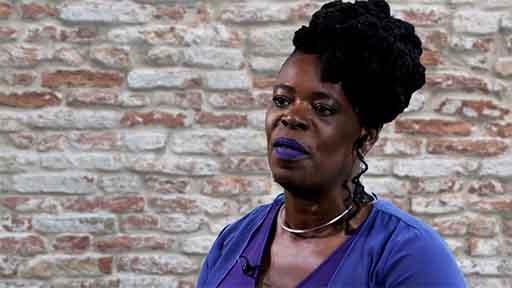1.1 Leading from above
It is well known that Black people are underrepresented in senior roles. Reasons for such underrepresentation are numerous, overlapping and complex, but are broadly attributable to various forms of overt and more concealed racism, which can be combined with other forms of discrimination such as ageism, homophobia, transphobia and ableism, and economic inequalities – these are issues with a deep historical legacy which are perpetuated in the present. The absence of role models and limited internship and mentoring opportunities also hinder opportunities to move to senior roles. The situation can be worse for women, who can face dual challenges of racism and sexism.
When Black leaders do enter senior roles, research has shown that they can face additional difficulties and burdens, as you will now explore.
Activity 1 Challenges and obstacles of senior leadership
Voluntary sector leader and OU PhD graduate Lace Jackson has conducted research with Black people holding senior roles in the UK. In her research, she uncovered a range of extra obstacles and challenges.
Watch the following video interview with Lace and make note of the challenges or obstacles mentioned.

Transcript: Video 1 Lace Jackson – obstacles and challenges
Discussion
Some of the obstacles and challenges raised by Lace include:
Tokenism and isolation. Organisations can appoint a Black person to a senior role but not offer them the kind of support they may need to overcome racism they face as leaders. As a result Black people in senior roles can feel isolated (Settles et al., 2019).
Raised expectations. Organisations can often expect more from senior Black leaders than other leaders (Jackson, 2022).
Lack of progression/mobility – limited diversity at the top of organisation deprives role models for minoritised staff members on the one hand, and reduces the pool of potential sponsors.
Burden of doubt, and super-surveillance. These are examples of the social dynamics Black people in positions of leadership have to contend with unlike their non-racialised and non-minoritised peers (Puwar, 2004, p. 58-62).
However, despite the significant obstacles faced by Black people in attaining senior roles, and in maintaining and succeeding in these roles, it is also true that the proportion of Black people in senior positions is increasing – albeit not at a pace we would like to see. The strides that have been made in improving representation are due in large part to the efforts of Black leaders themselves, who have used their positional power to establish systems and organisations to support others in their careers. For example, the 10,000 Black Interns programme was launched in 2020 with the aim of giving young Black people a flying start to their career. The 10,000 paid internships over five years will be accessible to Black students and graduates (see 10,000 Black Interns, 2022).
It would be a mistake to think that positional power is held exclusively by people at the top of organisations. This is not so, for three reasons:
- As Ladkin (2021) states, holding a senior role in an organisation means that you to a great extent are called upon to play a part, to represent and act on the interests of an organisation, its service users/customers and employees as a whole. Your discretionary power to act according to your own personal values is therefore limited.
- The power of senior leaders is limited by a growing span of influence. A span of influence is the scope of the people and things you are responsible for. As you gain seniority, your span of influence broadens. However, because everyone’s time and attention is limited, there are limits to how much direct influence senior people can have on an organisation’s activities, instead relying on delegating power.
- Ultimately, all senior leaders are only as powerful as the people who work for them allow them to be. As difficult as standing up to the boss might be, it is nearly always within the power of more junior staff – if they are united and purposeful enough – to destroy the authority of the most senior leader. Senior leaders therefore rely on a mix of coercive power (the power to discipline) and goodwill (positive feelings of trust) to gain results.
You will now move on to consider in more depth the positional power of more junior people within organisations.

